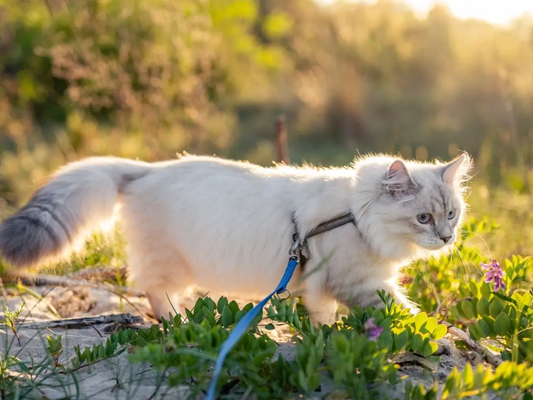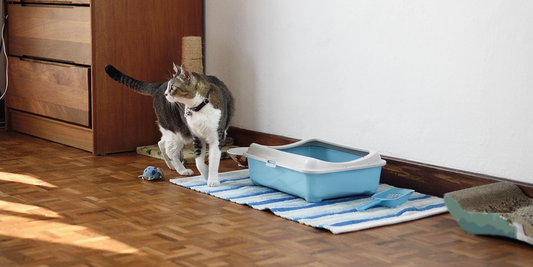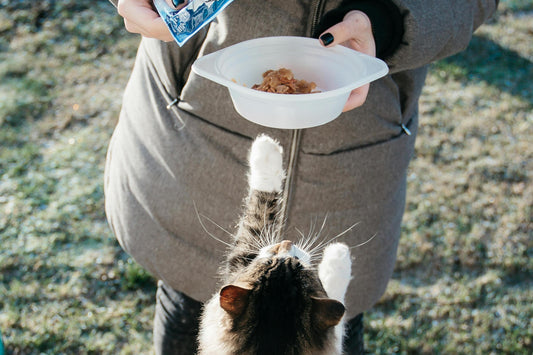Introduction
Cats are beloved members of our families, and we want to ensure their health and safety at all times. While it's tempting to share our meals with them, many human foods can be harmful, and some are even poisonous to cats. In this comprehensive guide, we'll explore the top 10 human foods that pose a threat to our feline friends, providing valuable insights to help you safeguard their well-being.
Human Foods That Are Poisonous to Cats?
- Chocolate: A Sweet Treat, but Deadly for Cats
Chocolate is a delightful indulgence for humans, but it contains theobromine and caffeine, which are toxic to cats. Even small amounts can lead to symptoms like vomiting, diarrhea, rapid breathing, and even seizures. To keep your cat safe, always store chocolate securely and out of reach.
- Onions and Garlic: Flavorful Culprits
Onions and garlic, whether raw, cooked, or powdered, contain compounds that can damage a cat's red blood cells, leading to anemia. Symptoms may include weakness, vomiting, and breathing difficulties. Avoid feeding any foods seasoned with onions or garlic, and be cautious with dishes like onion soup or garlic bread.
- Grapes and Raisins: Tiny but Dangerous
While the exact toxic component in grapes and raisins remains unknown, these fruits can cause kidney failure in cats. Even a small quantity can be harmful, potentially leading to vomiting, lethargy, and decreased urine production. Keep grapes and raisins off the menu for your feline companion.
- Xylitol: The Silent Threat in Sugar-Free Treats
Xylitol, a sugar substitute commonly found in sugar-free gum, candies, and baked goods, can cause a rapid release of insulin in cats, leading to hypoglycemia (low blood sugar). Symptoms include vomiting, lethargy, and seizures. Always check labels and keep xylitol-containing products away from your cat.
- Alcohol: Not for Felines
Alcoholic beverages and foods containing alcohol can have a severe impact on cats. Even small amounts can cause intoxication, leading to vomiting, disorientation, tremors, and potentially coma or death. Ensure all alcoholic beverages are securely stored and inaccessible to your curious cat.
- Caffeine: More Than Just a Pick-Me-Up
Caffeine is present in various products like coffee, tea, energy drinks, and certain medications. Cats are more sensitive to caffeine than humans, and ingestion can lead to elevated heart rate, tremors, seizures, and even death. Keep caffeinated items safely out of your cat's reach.
- Dairy: Not All Cats Love Milk
Contrary to popular belief, not all cats can tolerate dairy products like milk. Many cats are lactose intolerant, lacking the enzyme necessary to digest lactose properly. Feeding dairy can lead to gastrointestinal upset, including diarrhea and stomach discomfort. Stick to water as the primary hydrating source for your cat.
- Bones: Not Safe for Feline Consumption
While bones may seem like a natural treat for cats, they can pose significant risks. Cooked bones, especially chicken and fish bones, can splinter and cause choking, internal injuries, or blockages in the digestive tract. Opt for specially designed cat treats or toys instead.
- Raw Meat and Fish: Handle with Care
Raw meat and fish may contain bacteria like Salmonella or E. coli, which can cause food poisoning in cats. Additionally, raw fish can contain thiaminase, an enzyme that breaks down thiamine (Vitamin B1), leading to neurological issues. Always cook meat and fish thoroughly before offering them to your cat.
- Canned Tuna: A Tempting Trap
While a small amount of canned tuna may seem like a special treat, it should be given sparingly. Tuna lacks essential nutrients that cats need in their diet and can lead to malnutrition if consumed excessively. Additionally, some tuna varieties contain high levels of mercury, which can be harmful to cats over time.
FAQs
-
Can cats eat any type of chocolate? Cats should avoid all types of chocolate, including dark, milk, and white chocolate. Even small amounts can be toxic to them.
-
Are there any safe human foods for cats? Yes, some human foods are safe for cats in moderation, such as plain cooked chicken or turkey. Always consult with your veterinarian before introducing new foods to your cat's diet.
-
Why are onions and garlic harmful to cats? Onions and garlic contain compounds that can damage a cat's red blood cells, leading to anemia and potential health complications.
-
Can cats eat small amounts of grapes or raisins? No, even small quantities of grapes or raisins can cause kidney failure in cats. It's best to avoid these fruits entirely.
-
Is it okay to give my cat a taste of alcohol? Absolutely not. Alcohol can have severe and potentially fatal effects on cats, even in small amounts.
-
Can cats safely consume dairy products? Many cats are lactose intolerant and may experience gastrointestinal upset if given dairy products like milk. It's best to stick to water as the primary hydrating source.
Conclusion
As responsible pet owners, it's essential to be mindful of the foods we share with our feline companions. While certain human foods may seem harmless or even appealing to cats, they can pose serious health risks. By understanding the dangers and avoiding feeding these toxic foods, we can ensure our cats live long, healthy lives. Remember, when in doubt, always consult with your veterinarian for guidance on your cat's diet and nutrition.








